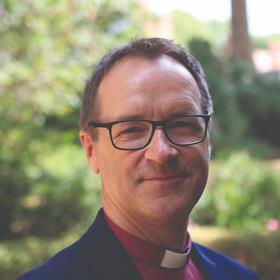With reports of renewal gathering pace, Christian leaders from a variety of churches and locations across the UK report on what they’re witnessing
For years, almost every study into religious affiliation and church attendance in the UK has told the same story. Fewer people are going to church. Secularisation is on the rise. Young people aren’t interested.
Not anymore, it seems.
In recent weeks a Bible Society/YouGov study named The Quiet Revival has revealed church attendance is increasing and the biggest rise is happening among Gen Z (18-24s) men. The report has been almost universally welcomed, with the excitement spurred on by the many churches who also saw record attendance at Easter.
Are we witnessing a turning of the tide? Surveys from the UK and other Western nations certainly look promising. Consider the following:
- Bible sales increased by 87 per cent between 2019 and 2024, according to SPCK.
- Twice as many people are making first-time commitments to follow Jesus compared to 2021, according to new Evangelical Alliance research.
- More then 2 million people tried the Alpha course last year - the highest figure ever recorded.
The former editor of this magazine, Justin Brierley, has been arguing since 2023 there’s a “surprising rebirth of belief in God” taking place, especially among leading intellectuals.
66 per cent of Americans have made a meaningful commitment to Jesus, a twelve per cent increase since 2021, according to Barna. Their CEO, David Kinnaman, called it: “The clearest trend we’ve seen in more than a decade pointing to spiritual renewal.”
Is this the beginnings of a new move of God? We spoke to a range of Christian leaders from across denominations and church backgrounds to find out.
Why we’re confident a quiet revival is taking place

Dr Rhiannon McAleer is director of research and impact at Bible Society
When the results of our recent survey, The Quiet Revival came back, we were stunned and delighted. The data showed growing Bible confidence among Christians and a remarkable rise in the number of people saying they regularly go to church, from eight per cent in 2018 to twelve per cent in 2024. This was particularly notable among under 35s and seen at scale among the white population, suggesting it’s unlikely to be caused by immigration alone.
This finding has been met with everything from jubilation to cautious optimism to outright scepticism. We too have wrestled with it, but here are three reasons we believe the quiet revival has begun.
1. The data source
Both surveys were conducted by expert pollsters YouGov, using very large, nationally representative samples and consistent methodology. YouGov is renowned for its accuracy and reliability, producing results trusted by policymakers, academics and organisations alike.
2. The data story
Some have suggested participants exaggerated their attendance, or even randomly filled in the survey. Surveys do have limitations; we rely on participants giving us an accurate account of how they act and it’s possible participants overstate their church attendance. But if that is occurring, it is radically more pronounced now than in 2018, requiring a rapid transformation of the perception of Christianity – whereby young adults are now more likely to falsely claim weekly church attendance. If this were true – which is very unlikely – it still shows something significant about the growing importance and relevance of Christianity today, with considerable opportunity for the Church to meet this demand.
Beyond this, these young churchgoers answer consistently in a way we would expect people with faith to answer. Their responses showed strong belief in God, frequent prayer, high Bible engagement and confidence, indicative of active and vibrant faith.
3. The bigger picture
For more than a year prior to the survey’s release, we heard numerous reports of increased church engagement – on university campuses, in chaplaincies and local parishes. Anecdote must be treated with care, but the volume and consistency add colour and encouragement to our findings. Globally, we see similar signs: a 45 per cent rise in adult baptisms in France, increased Bible transformation among Gen Z in the US and more young male churchgoers in Finland.
Across the secular West, the narrative of inevitable church decline is being disrupted.
Beautiful stories

Rt Rev Dr Jill Duff is the Bishop of Lancaster
I have lost count of the number of stories where I have been told: “We just thought we should come to church.”
A spiritualist recently came to faith through an Alpha course in one of our churches in Blackburn. She had a dream that unexpected people would come forward for baptism on Easter day. Sure enough, on Easter Sunday, six people turned up at church specifically asking to be baptised!
At our New Wine leaders conference in February, one of our speakers asked people to put their hands up if they’d had people come to their church out of the blue in the last month. There was a forest of hands in the auditorium of 2,000 people.
There are beautiful stories of people coming out of the woodwork unexpectedly: no respecter of tradition. The atmosphere was so heavy with the presence of God at our diocesan half-night of prayer in March at one of our ancient churches, St Lawrence’s Chorley, as people prayed before the Blessed Sacrament (not my usual practice, I admit!).
Is there a quiet revival? I believe God is eager, God is able. I pray daily with all my heart for an end to the dry season in our nation. Come, Lord Jesus.
We are amazed

Steve Chick is pastor of Hope Church Winchester
As prophets of doom were predicting Covid-19 was the beginning of the end of the Church in the UK, God had other ideas.
Remarkable stories of people coming to faith in Christ are not a new phenomenon. What is different is the increasing regularity of such stories across a broad range of churches. The turning tide has crept up on us unnoticed. We are being overtaken by the wonderful works of God. We simply watch on amazed by the young woman turning up and seeking help because Jesus spoke to her in a dream, telling her she needs to be baptised. Or the older man being freed from crippling emotional chains he’s lived with since playing his part in the emergency services after the 7 July London bombings. Or the logical thinker seeking answers to life’s big questions but having visions he can’t explain, including seeing himself shipwrecked in the open sea clinging to a wooden cross.
More stories. More baptisms. More changed lives. We simply watch on with awe at the wonderful works of God.
Reaping a harvest

Rev Gina Kalsi is a pioneer priest at Church Army’s Attercliffe & Darnall Centre of Mission in Sheffield
The Church has been faithfully planting understated, unseen seeds of evangelism over many years – in things like toddler groups, school assemblies and youth groups – even when we weren’t seeing results. I believe we are now seeing the harvest.
We were recently contacted by someone who wanted to know how to help their child learn about the Christian faith because their child was asking questions. It feels like there’s a generation of children who are interested – and the parents are coming too.
There are people whose grandparents have been praying for them faithfully – something they might never even know – and that has been significant in leading them to faith. The understated nature means it’s unmeasurable and unknowable where and how those seeds have been planted. It’s the parable of the sower – the seed has just been scattered, some of it has landed in fertile ground, but then it takes time to grow.
We did school assemblies in a predominantly Muslim area during Easter. Children were asking incredibly deep questions: “Why did Judas betray Jesus?” or “If Jesus is the Son of God, are you saying God died?”
It’s easy to celebrate the harvest – but it’s the quiet, understated work that makes the long-term difference.
Miracles in wales

Chloe Swart is the national director of Alpha UK. For more information on her PhD research on miracles see here.
During lockdown, Susie (not her real name) came on our online Alpha course looking anxious and upset. I asked what was wrong and she explained she had an exam the next day but couldn’t focus on revision because she had just been diagnosed with shingles. Her body was covered in a rash and she was feeling really unwell. I asked if I could pray for healing and she happily agreed. I simply said: “In the name of Jesus, rash go. Susie, receive your healing now. Amen.” I asked her how it felt. She turned to her mirror and lifted her jumper to see how the rash was. Her jaw dropped, her hands went to her face, she let out a squeal of shock. She turned to us on Zoom and said: “It’s gone! The rash has completely disappeared. I can’t believe it!” She was able to revise for her exam, take the test and she passed!
Across Wales we are hearing reports of hundreds of people getting physically healed following prayer. I decided to start a PhD to academically document what’s taking place. In just a couple of months, I collected more than 600 stories of people in Wales who say they’ve been healed.
What is fascinating about my results is that people aren’t necessarily getting healed in church services. Instead, the stories are of people getting healed when normal, everyday Christians pray for them in the supermarket, in their local Costa or at a friend’s house.
God is alive and active and he’s using people like me and you. When we pray, people get healed. It is a physical sign that God is alive, he is active today and he has the power to transform lives.
An evangelist’s response to the rebirth

Glen Scrivener is an evangelist and the director of Speak Life
While The Quiet Revival findings are striking, they confirm trends that many Christian leaders have already observed. For years, Justin Brierley has spoken of a “surprising rebirth” of belief in God. In my church in Eastbourne, I can point to half a dozen younger newcomers who have hopped on the Jordan Peterson train and ridden it further than Peterson himself – all the way to faith in Christ. The figures quoted in The Quiet Revival are both incredible and completely expected. They make church leaders like me say: “Well, yeah – this is what we’ve been seeing!” And though the effects will be unevenly distributed across the UK Church, the rise is real and there’s much to give thanks for. There’s also much to do!
The people who are showing up to church have complicated histories – full of curiosity but short on Christian understanding. Typically, they’ve tried everything else and are seeking something different. They want meaning, depth, wonder and challenge. They want a fully caffeinated Christianity – worshipful, prayerful, with the breaking of bread and the sharing of burdens. They want the Church to be the Church.
Now is the time to be bold. None of this rebirth will be without birth pains. The quiet revival is an invitation to press in deeper with God and his mission in the world. If this survey is to be believed, around a third of the UK will respond positively to an invitation to church – if only we’re bold enough to make it. Let’s put that hypothesis to the test and be ready for the many who are open.
Together with Justin Brierley, Glen is putting on Responding to the Rebirth, a day conference in London on 22 November. Details at speaklife.org.uk
God is on the move

Andy Johnston is senior pastor of King’s Community Church, Southampton
God is on the move. There’s no doubt about it. All around the UK, we’re hearing stories of rising church attendance and people coming to faith.
Here at King’s Community Church in Southampton, we had record attendance and saw 120 people respond to the gospel on Easter Sunday. In all my years of church leadership, I’ve never seen that.
I was reminded of something I studied many years ago when I did a PhD on the Reformation in Holland and Belgium. In the 1550s, the Calvinists planted churches – these little beleaguered communities, maybe 300 people at most. Ten years later there was a massive crisis of confidence in the government and a lack of trust in national leaders which produced a move of God that saw these churches grow from 300 to 5,000 almost overnight.
I feel like we’re on the verge of something similar right now. There is a massive crisis of confidence in our nation – a lack of confidence in politics, economics and institutions. This is a moment for us to believe God for remarkable breakthrough, that churches of 300 can become churches of thousands as we ask God to move by the power of his Spirit.
Students are more open to the Bible than ever

Luke Smith is the Fusion national team leader for England and Wales
When a swathe of young people move across the country to start university each autumn, it is the biggest annual migration of people in the UK. Students are ground-shakers, rule-breakers and culture-makers. They contain a pent-up energy that is often a catalyst for change. And in this country, there are 2.4 million of them.
According to research commissioned by Fusion last year, 33 per cent of non-Christian students are open to reading the Bible with a friend, to exploring the possibility that scripture could be a source of truth that they simply haven’t explored yet. A third actively want to read it.
Fusion has been sharing the stories of lives transformed at university for decades. But, in the last year, the nature of these testimonies has changed. Students are dreaming dreams, seeing visions and, increasingly, encountering Jesus through the Bible.
The word of God is speaking, just as it has been for thousands of generations. This might just be the generation who finally take off their headphones and hear it.
A thirst for prayer

Dr Jonathan Oloyede is the team leader of the National Day of Prayer and senior pastor of City Chapel in East London
Last year we organised the ‘Shine Your Light’ campaign, which saw more than 100,000 believers taking the gospel to the streets, singing carols at Christmas. There were numerous testimonies of churches revived, salvations and healings.
This campaign spilled over into 2025. Together with the King’s Army, a vision day saw more than 700 leaders and activists come together. Hundreds hit the streets, with thousands impacted and many salvations and miracles happening before our eyes.
Those on the fringes of faith are now connecting to the Church. At our own fellowship, more than 20 children and young people made decisions to follow Christ recently and said they wanted to be baptised! We are only small, but the signs are clear that God is on the move.
I have been leading prayer meetings in this nation for over 30 years. In that time, I have seen relative apathy towards daily intercession and all-night prayer, compared with other nations. But this is now shifting. We used to pray for half an hour a week with a majority White community of Christians. Then it became an hour. Now we pray every morning and evening, with hundreds joining daily! I have not seen anything like it. This is a sign of renewal along with the thousands connecting with us in prayer evangelism.
Dissenting opinions
Repentance must be central

James Mildred is the director of communications and engagement at CARE
I don’t want to be gullible. I don’t want to hear the word ‘revival’ and assume it must be so. But I also don’t want to be cynical, because if this is genuine, and these figures suggest something exciting is going on, then it’s a great work of God and I want to praise him for it. I want to – as 1 John 4:1 instructs – “test the spirits”. I want to be discerning.
Every revival that has ever taken place has Christ at the centre. And there’s always a really deep conviction of sin. So that’s what we need to see. There is always a danger that people enjoy the therapeutic benefits of Christian community, but that’s not nearly enough. Real conversion is turning from sin to Christ and receiving him. All the blessings of the gospel – forgiveness, reconciliation with God, adoption – come to us through Christ alone.
Is there any empirical evidence of people recognising their sinful brokenness and of the need to repent and turn away from their old lifestyle towards Jesus? There’s evidence of increased churchgoing – but that’s not the same thing.
I don’t want to dismiss this report. I want to believe it, but I also don’t want to be criticised as a doomsayer just because I have legitimate questions. I’m left feeling that I need to see more evidence before I can honestly call this a revival – even a quiet one.
Are we willing to let God in?

Rev Dr Christopher Landau is director of ReSource (resourcingrenewal.org)
My concern about whether churches are equipped to respond to this spiritual stirring relates to a basic problem: functional atheism. By this, I mean that too often we have ended up ‘doing church’ in our own strength, planning services and programmes with such tight human control that there is little space left for divine sovereign intervention. This is the very opposite of a climate where renewal, or even revival, might take hold.
The development of the contemporary worship band offers one example. In many larger churches, musicians operate with a ‘click track’ playing in their headphones, which regulates their speed, often combined with an automated backing track to augment what is being played live. In such a context, any spontaneous change of songs becomes virtually impossible. What if God prompts someone present with a scripture or prophetic word? There’s little chance of it being offered before the pre-planned ‘worship set’ has concluded.
That may sound trivial, but it underlines how easy it is for well-meaning Christians who say they are open to the work of the Spirit to end up operating in a culture where there is precious little room for that Spirit to move. A similar observation could be made about preachers who refuse to ever depart from their fully prepared scripts. Ironically, ‘contemporary’ church services end up being as tightly controlled as highly traditional ones. Are we willing for God to influence or even disrupt our existing plans?
Extraordinary claims require extraordinary evidence

Tim Wyatt is a freelance journalist
I would love to get carried away with excitement at the idea Britain is bursting into revival, but I keep coming back to a simple but important mantra: extraordinary claims require extraordinary evidence. For more than 60 years, churchgoing across almost every denomination has steadily dropped in Britain. So the idea that Sunday attendance has suddenly exploded by more than 50 per cent in just six years (as the Bible Society suggests) is an extraordinary claim, without – so far – the necessary extraordinary evidence.
I don’t question the good intentions of the Bible Society or their pollsters, but measuring religious practice is notoriously difficult. Polls rely on people accurately self-reporting their own habits, whereas other national surveys – which ask vicars to literally count the number of people present on a particular Sunday – have continued to show stubbornly intractable decline. Furthermore, because practising Christians are such a small slice of the population, it is difficult to pull together a large enough sample to be genuinely representative of the whole population and deliver robust, repeatable results.
Every generation yearns to be the one that sees the long winter of the dying Western Church give way to a springtime of revival. But we have to avoid wish-fulfilment. The point of revivals is that they are not usually quiet. They don’t need to be carefully discerned through statistical analysis. True revivals – with the Holy Spirit outpoured and a people captured anew with love for God – are normally pretty obvious to everyone watching, Christian and non-believer alike. Whatever is happening right now, it doesn’t feel quite like that.
Not excited yet

Patrick Regan is the founder of Kintsugi Hope and an author and speaker
From as young as I can remember, I have heard preachers speaking about revival being just around the corner. I hope it is. I don’t want to appear rude, but when the poor and the homeless are housed, when corrupt leaders stop exploiting the weak in the name of progress, and when the humble and broken are given a voice, I will become more excited. When we don’t have to announce it on social media as it stirs up from the grassroots of community, where our friends and neighbours are encountering God’s love, when those with additional needs are included and those who are paralysed with self-doubt and loathing know how loved they are – then I will be very excited.
Truth doesn’t need a referendum

Rt Rev Graham Tomlin is director of the Centre for Cultural Witness which runs seenandunseen.com where these comments first appeared
For those of us who have been part of the Church for years The Quiet Revival research is indeed welcome news and a cause for some cautious optimism. Yet forgive me if I take it with a pinch of salt.
The popularity of Christianity has always waxed and waned throughout the last 2,000 years. There are times when it has been the flavour of the month – or the century – such as when it became the official religion of the Roman Empire 300 years or so after the time of Jesus. Yet popularity brings danger. When Christianity becomes cool, it has a tendency to lose its soul, its radical nature diluted by the flocks of people drawn to the cross as a kind of fashion accessory. At other times it has dwindled to a few hardy souls braving it out, like the eleven fearful disciples huddling together in Jerusalem, looking for an escape route after Jesus’ execution.
I’ve never taken the predictions of the Church’s demise too seriously. Which is why I’m not one for putting out the bunting when the predictions go the other way.
Christianity’s claims to truth are not dependent on a referendum. Our faith remains true whether or not people believe it. The appeal of Christian faith is precisely the fact that it centres on an event where the eternal became temporal, where God entered into human history. It therefore transcends time and space, opinion polls and surveys. It gives a confidence rooted not in the swinging mood of public opinion, up one minute and down the next, but something lasting, permanent and reliable.
630 kids and teens gave their life to Christ at Spring Harvest

Abby Guinness is head of Spring Harvest. Find out more at springharvest.org
It’s after midnight and a bunch of 20-somethings are jumping up and down and singing at the top of their lungs. Perhaps that’s not so unusual, even for a Wednesday. But you stop to listen more carefully, and you realise they’re singing ‘Shine Jesus shine’. They’ve been belting out worship songs for a while and show no signs of running out of material.
They are eventually ushered reluctantly off to bed with pleas of: “We need you on top form for the kids in the morning!” This is the Spring Harvest Kids’ Team, and they’re not in a nightclub, but the Butlin’s dining room, which also doubles as the team lounge for a week.
The following evening, the largest venue is almost full at 10:45pm. Crowding the front are teenagers who have been waiting on the Holy Spirit, worshipping, praying, sharing testimonies and now dancing in abandoned praise. Young worship musicians Jake Isaac and Elle Limebear have also raided the ‘assembly bangers’ back catalogue and are leading the crowd in a raucous rendition of ‘Give me oil in my lamp’. The room is unmistakably full of joy. Some of the responsible (older) folks feel bad about calling for a pause, eventually, but the staff, technicians and stewards need sleep before they have to open up again in the morning. Everyone takes it surprisingly well. As they set off for bed, the teenagers are chanting: “Jesus! Jesus! Jesus!”
What The Quiet Revival report published, we were already feeling at Spring Harvest. In each of the past four years, more children and young people have made a decision to follow Jesus than the year before. This year, more than 630 under the age of 18 chose to make that commitment.
Spring Harvest has always been intergenerational but, since the pandemic, our demographic has shifted. Almost 40 per cent of our guests and team are under the age of 26, and they are more open than ever to bringing friends with them.
A large group of prison leavers and another recovering from addiction joined us in Skegness. They asked us to find an extra venue for the afternoons so they could carry on worshipping. They didn’t want to stop and didn’t care if anyone had a guitar.
We thank God for every one of these event-moments and opportunities and pray that the sound of revival will continue to rise – getting louder and stronger in every generation.
Urgent need for discipleship

Jean Kabasomi is a freelance strategy and operations consultant for Christian organisations
It has been widely reported that Gen Z are coming to church more than any other age group, but less reported are the findings that say the more these young people study and explore the Bible, the more they lose confidence in it. Thirty-five per cent of 18-to-34-year-old churchgoers said that some parts of the Bible undermine their faith, while 24 per cent have less confidence in the Bible than they used to.
If the Church does not want to lose younger Christians, we must disciple them
This points to an urgent need for discipleship. If the Church does not want to lose younger Christians, we must disciple them. It is up to those of us who are teachers, pastors, mentors and older Christians to teach the word of God and outline its importance to our younger brothers and sisters. It is no good sitting on the sidelines. We cannot exclude ourselves because we don’t know how to use TikTok. If we do, it will only be a matter of time before the flame of this revival fizzles out instead of spreading like wildfire.
The tide has turned

Ness Wilson is a leader at Open Heaven Church in Loughborough. She is also the Pioneer Network UK leader and sits on the Evangelical Alliance Council
Around two years ago my husband said: “Ness, we’re in the grip of a slow awakening and there’s nothing we can do to stop it.”
There was zero evidence of such a thing, but I took note because his track record of sensing what God is doing is pretty good.
Over the past 18 months, we’ve witnessed an unprecedented hunger among non-Christians to read the Bible, students (not yet Christians) wandering into the back of the gathering and asking: “Can I have a Bible?”
The pace of salvation stories is of a different order. At our termly baptism gatherings, we have heard much less of the ‘typical’ story of those who had been brought up as Christians, backslidden and come back to faith at university. Instead, far more are coming from non-Christian backgrounds. The stories are more supernatural and dramatic, with many being plucked from dark and desperate situations. People are being found by Jesus before finding church.
The boldness of how the under 25s are sharing their faith far surpasses those of older generations. One young woman recently filmed herself going into church and posted it online with the words: “Come to church with me.” She had a couple of people she didn’t know contact her and go with her. One has just become a Christian.
The tide has definitely turned. The Quiet Revival report is a provocation to us all. The challenge is: how do we respond? Cynicism or by blessing what God is doing?
A loud revival

Danielle Campsall is a leader at Message Community Church in Wythenshawe, Manchester
Having planted a church in one of the largest council estates in Europe, from where I’m standing, the revival isn’t quiet at all.
It’s loud when I scan the room on a Sunday morning and spot the local drug dealer with his arms raised in worship. It’s loud when the pub landlord is now the one singing praises with everything he’s got. It’s loud when an addict is 20 months sober, and her teenage sons are describing Jesus as the Father they never had.
It’s loud when I walk into a prison to visit a woman I’ve just baptised. She once carried so much shame that she believed her story was over, but now she uses her time to bring hope to others who need it.
It’s loud when I baptise three generations of one family – a son, his mum and 93-year-old nan, who has encountered Jesus in her later years and is experiencing the newness of life in him.
And it’s not just where I live that we’re seeing this happen. As The Message heads out into schools, communities and prisons, we’re seeing a hunger for Jesus and countless stories emerging.
Revival might begin quietly – in raised statistics, in people questioning life, whispered prayers and quiet tears of hearts turning back to God. But it doesn’t stay quiet for long – it multiplies, sweeps through households and rewrites stories. It calls people to purpose and sees heaven celebrating day after day, week after week as the most broken find hope.
God is on the move, and it’s incredible that we get to be part of it!
For more news, comment and reaction, visit premierchristianity.com/features/renewal

































1 Reader's comment